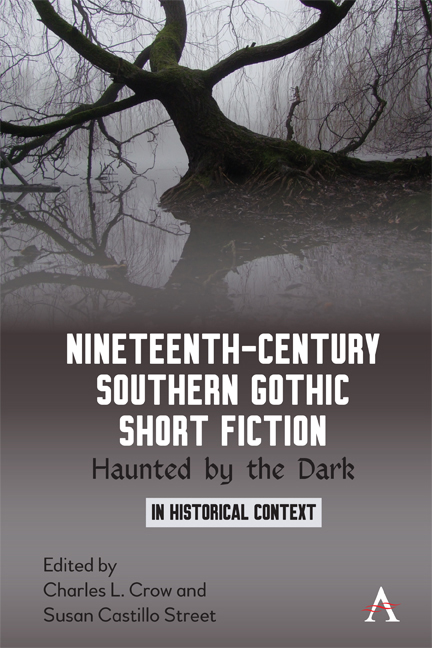Chapter Thirteen - J. Hector St. John de Crèvecoeur, from Letters from an American Farmer : Letter IX (1782)
Published online by Cambridge University Press: 20 January 2022
Summary
Crèvecoeur (born Michel-Guillaume de Crèvecoeur) was a French soldier who became a naturalized citizen of New York. The early chapters of his Letters from an American Farmer (1782) describe an idealized life in rural New York in the years before the Revolution. He celebrates an early vision of the American Dream, in which European peoples are blended to create a new and perfect democracy.
But on a visit to South Carolina, Crèvecoeur takes a walk on a pleasant sunny day, enters a wood and encounters something that shatters his vision of simple republican virtue. What he finds in the woods forces him to acknowledge that “we certainly are not that class of beings which we vainly think ourselves to be.” This is a true moment of the Gothic uncanny.
Text: J. Hector St. John de Crèvecoeur, Letters from an American Farmer, reprinted from the original edition (New York: Duffield, 1904). A small number of obvious misprints have been silently corrected and present-day conventions for quotation marks applied.
LETTER IX
Description of Charles-Town; Thoughts on Slavery; on Physical Evil; a Melancholy Scene
CHARLES-TOWN is, in the north, what Lima is in the south; both are Capitals of the richest provinces of their respective hemispheres: you may therefore conjecture, that both cities must exhibit the appearances necessarily resulting from riches. Peru abounding in gold, Lima is filled with inhabitants who enjoy all those gradations of pleasure, refinement, and luxury, which proceed from wealth. Carolina produces commodities, more valuable perhaps than gold, because they are gained by greater industry; it exhibits also on our northern stage, a display of riches and luxury, inferior indeed to the former, but far superior to what are to be seen in our northern towns. Its situation is admirable, being built at the confluence of two large rivers, which receive in their course a great number of inferior streams; all navigable in the spring, for flat boats. Here the produce of this extensive territory concentres; here therefore is the seat of the most valuable exportation; their wharfs, their docks, their magazines, are extremely convenient to facilitate this great commercial business.
- Type
- Chapter
- Information
- Nineteenth-Century Southern Gothic Short FictionHaunted by the Dark, pp. 135 - 144Publisher: Anthem PressPrint publication year: 2020



